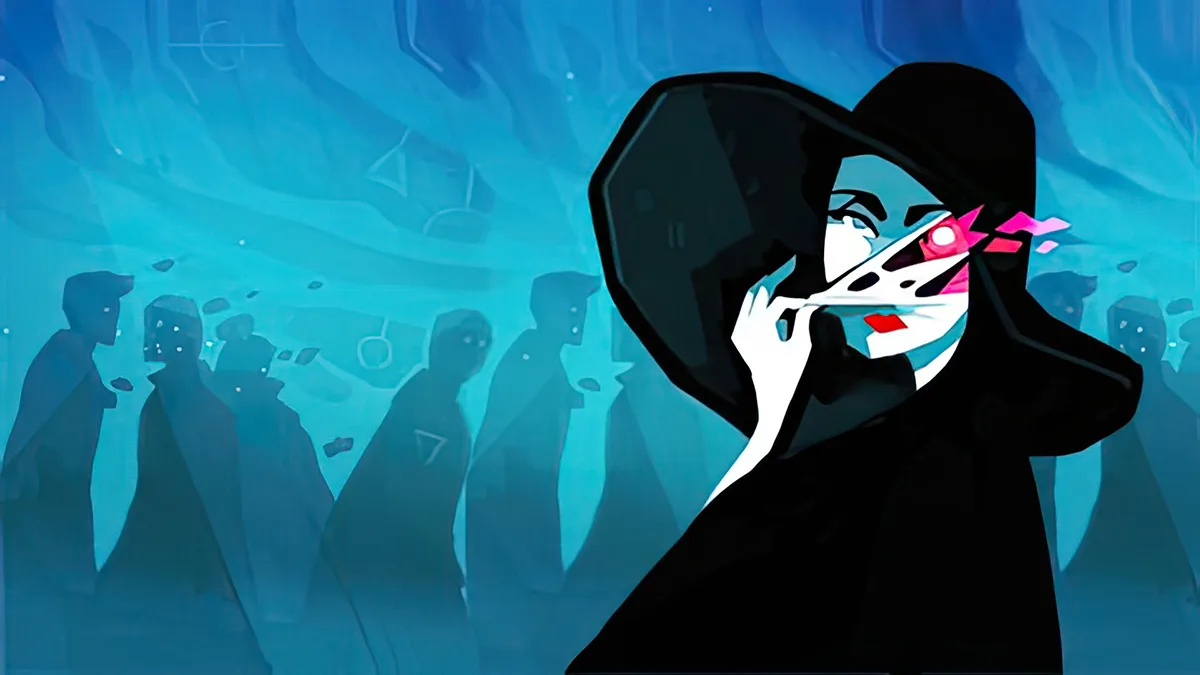Table of Contents
The game development industry stands at a pivotal moment of transformation. Unity’s recent pricing controversy ignited discussions about engine choice, yet beneath these debates, a quieter but more profound revolution has emerged. The rise of community-driven tools in professional studios. This shift transcends mere cost savings, representing a fundamental change in how developers approach freedom, community, and sustainable practices.
Ultimate Game Engine Guide: Choosing the Best for Your Project
Discover the best game engine for your project. Detailed comparison of major game engines, from AAA to indie development.

Industry at a Crossroads
Over the past decade, the landscape has undergone remarkable maturation. Unity and Unreal established themselves as dominant forces, creating what appeared to be an unshakeable standard. Then 2023 arrived, bringing changes that compelled developers worldwide to reassess their toolchain choices.
Unity’s Watershed Moment
The Unity pricing announcement became a catalyst for change, prompting studios to seriously explore alternatives. Though the company later modified its approach, the incident revealed an essential truth: exclusive reliance on proprietary tools carries inherent risks. This realization pushed many teams to consider open source solutions as primary development tools rather than mere backup options.
The impact materialized swiftly in the real world. Independent studios began documenting their transitions, creating valuable resources for others following similar paths. Games like RPG in a Box emerged as compelling proof that these alternatives could deliver professional-quality results.

Blender: The Open Source Revolution
Success Story
The potential of open collaboration in creative industries finds no better illustration than Blender‘s remarkable ascent. From its origins as a hobbyist tool, the software has evolved into a powerhouse that frequently surpasses commercial alternatives. Major studios including Ubisoft and EA now integrate it into their pipelines, validating its capability to meet rigorous professional standards.
Beyond Basic 3D
Contemporary versions transcend traditional modeling boundaries. The Grease Pencil feature has revolutionized 2D animation workflows, accompanied by simulation tools that rival specialized commercial software. The Netflix animated film Next Gen showcased the software’s production capabilities, utilizing it for both character modeling and animation.
Community-Driven Innovation
The Blender Development Fund exemplifies sustainable collaborative development, drawing support from individual users and major companies alike. This funding model ensures development priorities align with actual user needs rather than corporate directives.

Alternative Engines
Godot: The Engine That Could
Godot‘s trajectory mirrors a similar evolutionary path. This alternative demonstrates how community-driven development can yield professional-grade tools. Its node-based architecture presents an intuitive approach to creation, offering a natural alternative to traditional component systems.
Practical Implementation
Consider this elegant scene implementation in the engine:
extends Node2D
# Clean, readable game logic
func _ready():
setup_game_environment()
connect_signals()
load_resources()
func setup_game_environment():
$Background.modulate = Color(0.8, 0.9, 1.0)
$Player.position = get_viewport_rect().size / 2This straightforward approach exemplifies the philosophy: making complex systems accessible without compromising power or flexibility.

Modern Development Pipeline
Successful examples are abundant. Weather Factory used Blender for all 3D elements in Cultist Simulator. Red Thread Games integrated open source tools into their pipeline for Dreamfall Chapters. The indie hit Children of Morta by Dead Mage showcases how open source tools can deliver stunning 2D visuals.
Practical Pipeline Integration
Modern workflows often follow a natural progression: conceptualization in Krita, asset creation in Blender, texturing in ArmorPaint, and final implementation in the chosen engine. Each tool serves its specific purpose, creating an efficient and cost-effective pipeline.
Asset Creation and Management
The strength of these tools lies in their interoperability. Export systems integrate seamlessly with various engines, while emphasis on open formats minimizes pipeline friction. Studios consistently report maintaining quality while achieving significant cost reductions.

Career Landscape
Career Implications
The proliferation of alternative tools creates expanding opportunities in the industry. Companies now seek professionals who understand both proprietary and community-driven ecosystems. This dual expertise proves particularly valuable when optimizing pipelines and resolving technical limitations.
Evolving Role Requirements
Roles continue to evolve, embracing diverse expertise. Technical artists now combine multiple software proficiencies, creating versatile skill sets that studios actively seek. Engine programmers proficient in both commercial and alternative architectures become invaluable assets, enabling informed decisions about tool selection and implementation.
Game Artist Career Paths: Your Guide to Success
Explore game artist career paths, a variety of specializations, and tips to get a job in game development.
Industry Integration Examples
Leaders such as Amazon, Microsoft, and Epic Games now actively participate in community projects. Amazon’s transformation of Lumberyard into the open O3DE (Open 3D Engine) exemplifies this shift. Studios increasingly recognize that supporting collaborative development benefits the entire industry, fostering innovation while reducing redundant efforts.

Practical Challenges
Documentation and Resources
Professional documentation poses a notable challenge. While commercial game engines maintain extensive official documentation, alternatives rely on community-maintained resources. Progressive studios address this by building internal expertise and partnering with specialized consulting firms for professional support.
Technical Performance
Some engines may require additional optimization for complex projects compared to their commercial counterparts. Implementing advanced features often necessitates custom solutions or community-developed alternatives. This challenge presents opportunities for deeper system understanding, leading to more efficient, tailored implementations.

Future of Game Creation
The integration of alternative tools into professional workflows continues to reshape our industry. This transformation fundamentally alters both creation methods and creator demographics. Technological advances like real-time ray tracing, machine learning integration, and advanced physics systems represent only the beginning of this evolution.
Industry Evolution
Open source tools drive profound changes by lowering barriers to entry and fostering innovation. Studios collaborate more effectively, sharing solutions through open contributions. This transformation accelerates technology adoption and establishes more sustainable practices.
Sustainable Development
The community faces ongoing challenges in maintaining long-term sustainability. Achieving feature parity with commercial tools while sustaining professional support services requires continuous effort. Training programs and industry adoption patterns continue evolving to meet emerging needs, creating opportunities for innovation and growth.
Conclusion
The evolution of open source tools represents more than a reaction to commercial software practices – it marks a fundamental shift in creation methodology. For both individual developers and established studios, proficiency with alternative solutions becomes increasingly valuable.
The most compelling aspect extends beyond the tools themselves to the possibilities they enable. From independent creators crafting unique experiences to major studios optimizing pipelines, these solutions foster innovative approaches to game creation.
The future lies not in choosing between community-driven and commercial tools, but in understanding how to leverage each approach’s strengths. As gamedev industry continues to evolve, the ability to navigate and contribute to both ecosystems will become increasingly valuable.
Share your experiences with alternative development tools in the comments below. How has the shift influenced your creative workflow?
FAQ: Common Questions About Open Source Tools
Are open source tools really capable of producing AAA quality games?
Yes, absolutely. Many major studios now integrate open source tools into their pipelines. For example, Blender is used by companies like Ubisoft and EA, while games like RPG in a Box demonstrate what’s possible with Godot. The key lies in understanding each tool’s strengths and implementing proper optimization strategies.
What’s the best way to start learning open source tools as a professional?
Start by integrating one open source tool into your existing workflow rather than switching everything at once. For example, you might begin using Blender for specific asset creation while maintaining your current engine. Work on personal projects to build confidence, and actively participate in community forums where you can learn from others’ experiences.
How reliable is community support compared to commercial support?
Community support can be surprisingly more responsive than commercial alternatives. Major open source projects like Blender and Godot have active communities that quickly address bugs and feature requests. However, for enterprise needs, several companies offer professional support contracts, providing the same level of reliability as commercial tools.
How long does it take to transition a team from proprietary to open source tools?
The transition period typically takes 3-6 months for a team to reach full productivity. Initial training focuses on basic workflows, followed by pipeline integration and optimization. While there may be a temporary dip in productivity, most teams report increased efficiency once they’ve adapted to the new tools.
Want more insights like this? Subscribe to my newsletter for weekly updates!






